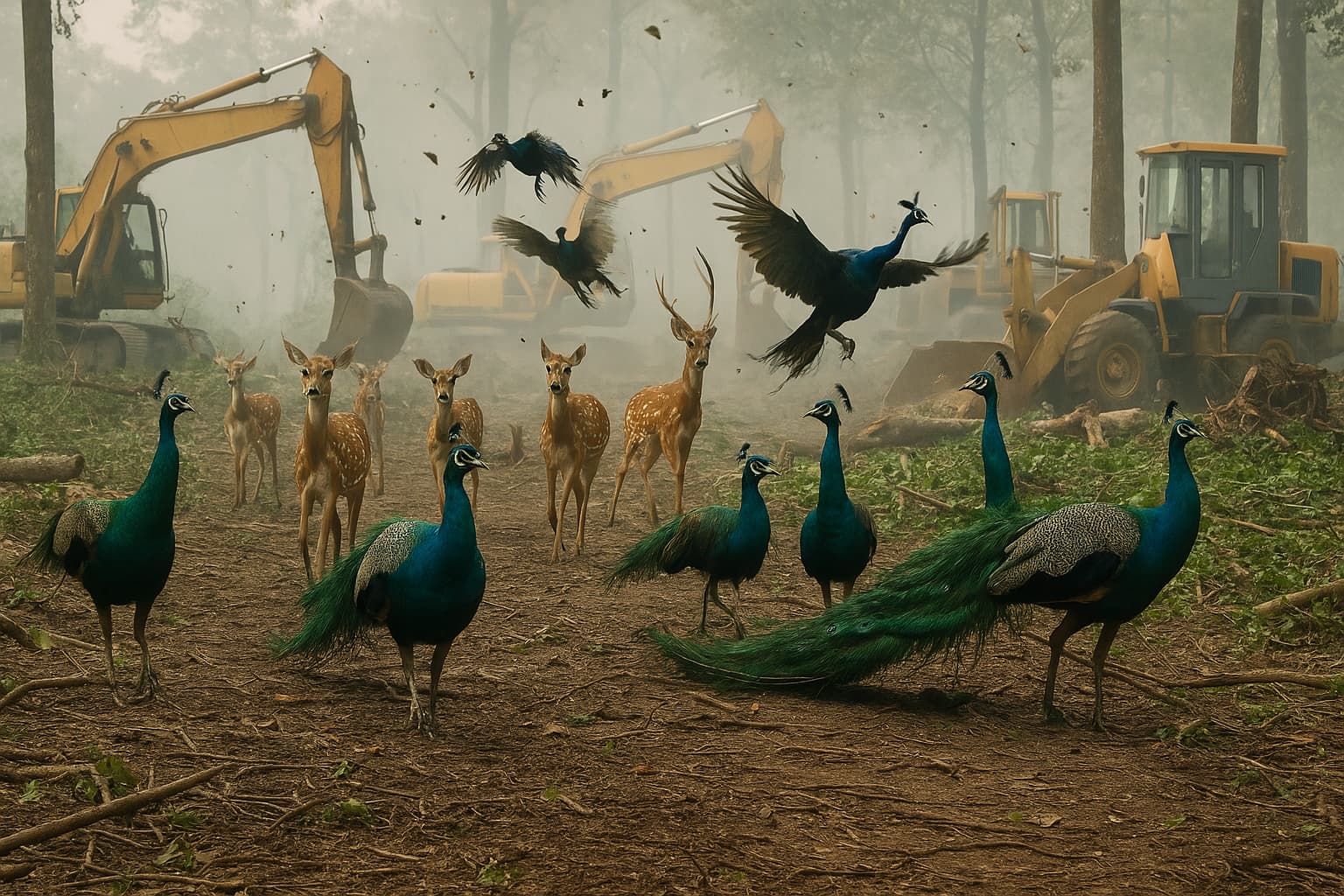Introduction: The Battle for Telangana Forests
In the heart of Telangana, a fierce tug-of-war is underway—between forests and files, tribal rights and real estate, environmental preservation and political posturing. The question echoing through Hyderabad’s courts and communities is simple yet profound:
What will win—humanity or politics?
1. The Beginning of the Forest Controversy
The Telangana forest conflict isn’t just about trees—it’s about trust, broken and restored.
It all started with a 106-acre stretch of forest land near Bhupalapally, which was initially protected under forest laws. But aggressive claims emerged from private parties, alleging ownership with questionable documents. Shockingly, state officials submitted false affidavits supporting these private claims, raising public outrage.
In April 2024, the Supreme Court overturned a High Court ruling that favored the private claimants. The court restored the land to the Forest Department and fined the Telangana government ₹5 lakh for misleading legal documents. Even more striking—the fine was to be recovered from the erring officers, setting a rare legal precedent.
Justice was served, but the battle for Telangana’s forests was far from over.
2. Humanity Speaks: Tribal Rights and Podu Lands
While courts fought for forests, humanity voiced its concerns from the hills and hamlets of Telangana.
For generations, Adivasi communities have practiced Podu cultivation, coexisting with nature. However, they often find themselves in legal limbo, struggling for land rights against forest department regulations.
In a significant move, Telangana’s government, under Chief Minister K. Chandrashekar Rao, withdrew police cases against Adivasis and distributed title deeds to those cultivating the land. While this seemed like a victory for tribal rights, critics questioned the timing—was this a genuine effort or an election strategy?
The fight for land is not just about ownership; it’s about identity and justice.
3. The Green Cover vs. Grey Realities
Meanwhile, the Telangana High Court pulled up the state government in September 2024, demanding clarity on its efforts to preserve urban green spaces. The court emphasized that unchecked urbanization, shrinking parks, and vanishing lakes are not just environmental issues—they are a threat to the very soul of Hyderabad and its neighboring regions.
Despite the state boasting several environmental initiatives, including Haritha Haram (a large-scale tree planting campaign), the actual protection of forests continues to waver, often challenged by vested interests and development pressures.
The Telangana High Court, in September 2024, demanded answers from the government about declining urban green spaces. While initiatives like Haritha Haram (a large-scale afforestation program) have been promoted, urban areas continue to see vanishing lakes, shrinking parks, and reckless deforestation. The court reminded officials that: Green cities aren’t optional—they’re essential.
4. Where We Stand Now: The Legal Verdict
The Supreme Court’s message is clear:
- Forest land is not for sale.
- Legal manipulation will be penalized.
- Environmental accountability is not negotiable.
But the state government is caught between ecological responsibility and electoral strategy. The tribal communities have won a partial victory, yet their battle for land security continues.
Will laws be enforced effectively? Or will political interests dilute their impact?
5. The Final Question: What Will Win?
Telangana’s forests tale is not just about local governance—it’s a mirror reflecting India’s wider dilemma. Do we prioritize ecological balance or political expediency? Do we protect those who have lived in harmony with nature or those who seek to exploit it?
The answer, perhaps, lies in unity—of law, policy, and people. Where forests are preserved not just in name, but in practice. Where tribal communities are not sidelined but empowered. And where politics listens to humanity, not the other way around.
Only then will we truly know what wins. But for now, the forest still waits.
At VRAIVERSE, we believe that technology, education, and awareness can shape a more conscious generation—one that values nature as much as progress. Let’s raise our voices for the forests, for the people, and for the future.


















